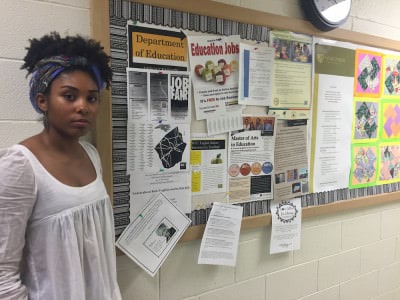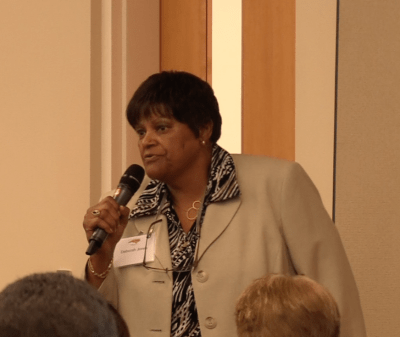

During the mind-numbing record heat of the last few weeks, we were also mentally blanketed by the hundreds of pages of details in the new Senate budget—what’s in it, how it differs from the House version, how it measures up to what we think it should be.
That’s a prescription for a large iced tea right there, extra sweet.
We might need the bracing effects of ice and caffeine to throw off the wooly thinking that can bog us down when we read about the state budget. But whatever it takes, we need to think our sharpest right now, because the state budget is a picture of our state’s future, and the future starts now, with what happens in this document.
First, it’s not all bad.
There are several good policy recommendations and a few worthy funding recommendations in it. Among them:
extending the age of foster care to 21;
increased funding for the Nurse Family Partnership;
a market rate increase for infant and young toddler child care providers in some rural counties;
policy provisions and funding which would allow parents of children with disabilities to set up 529 tax-deferred investment accounts to save for their children’s care; and
a 22 percent increase in reimbursement rates for Medicaid primary care providers, which helps ensure that primary care physicians continue to see Medicaid recipients.
Taken together, those and other positive initiatives show that in some important ways, the Legislature does understand that all things that affect children’s lives are connected–that day care providers and doctors have to make enough money to stay in business, so the kids can be safe, healthy and grow up strong and smart. It shows that the Legislature does acknowledge the value in creating and maintaining governmental systems and structures that create healthy communities, strong families, and a good quality of life for all of us.
But there are some serious gaps in funding for critical efforts, some important policy pieces that need to be fixed, and some proposals to monitor as they unfold. Our staff and allies have been working diligently to identify and articulate these concerns, and I invite you, as a citizen concerned about our future, to dig in and learn more about what’s on the table. You can see our summary for starters.
So pour another glass of tea and read on for what needs to be fixed:
the Senate failed to include two key provisions that were in the House budget that would expand access to high-quality child care;
the Senate budget would result in the loss of 520 NC Pre-K slots as the budget allocates only $2.3M to replace $5M of nonrecurring funding that expires at the end of the current year;
the budget cuts $185M in funding for the agencies (LME/MCOs) that provide mental health services;
elimination of Community Care of North Carolina and the Office of Minority Health;
no funding for driver’s education and a policy trajectory that minimizes the importance of this critical statewide safety issue; and
cutting more than 8,500 teaching assistants the next two years. That would be a net reduction in classroom supervision and support, even if additional classroom teachers are hired to reduce class size.
It’s expected that the process of negotiating a final bill between the House and Senate will take weeks.
And it illustrates the difficulty of adequately investing in children with a continuously eroding revenue base. According to the North Carolina Budget and Tax Center, the Senate’s tax plan, which is included in the budget proposal, would result in the loss of $951M over the biennium and over $1B annually once it is fully implemented.
With that amount of funding, the Senate could eliminate the child care subsidy waiting list of 31,359 children, maintain funding for teacher assistants, and expand NC Pre-K to serve all low-income four-year-olds in the state.
One thing is for sure: this could be a better budget, and if well-informed children’s advocates contact their legislators about it, it will tend to put a breeze in the sails of progress. That’s good for everybody.




